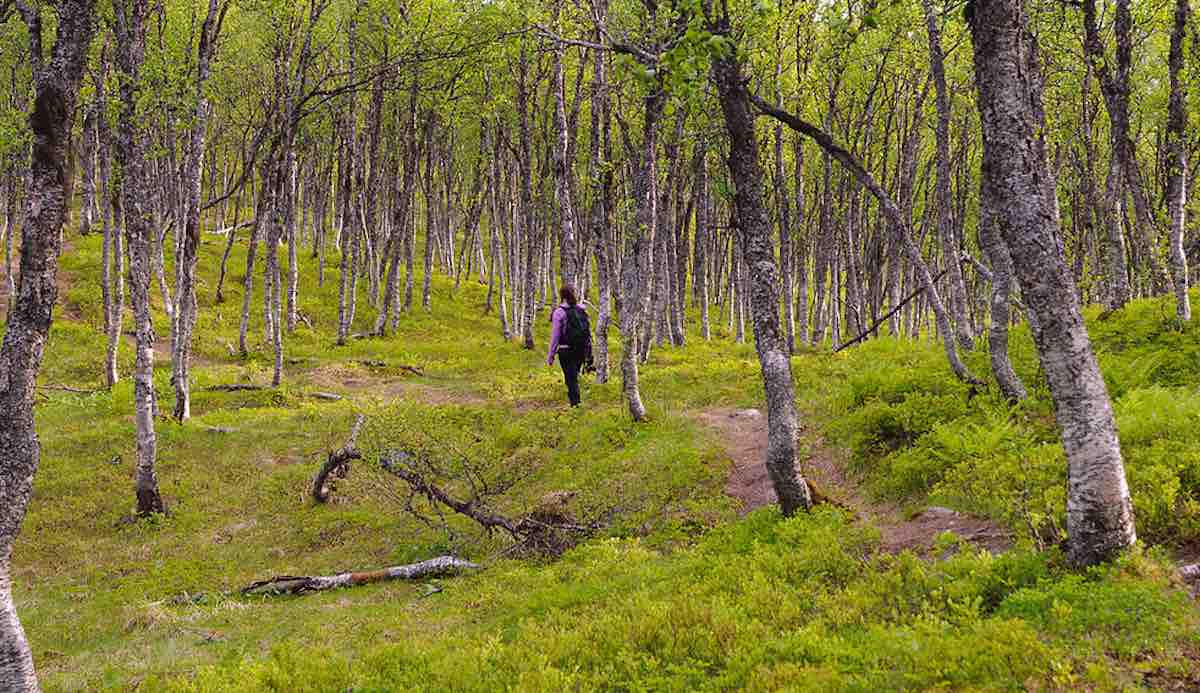There is something very therapeutic about walking through a quiet forest during the day. In fact, there’s a whole medical practice that boasts about the positive mental and physical benefits of spending time in nature.
Dr. Qing Li has been called the world’s foremost expert on “forest bathing” – or “shinrin-yoku” in Japanese – and he firmly believes that people in modern societies are suffering from “nature deficit disorder.”
The average American is already estimated to spend 93% of their time indoors – and as a result of this earthly deprivation, people experience an increased risk of mental and physical ailments.
Forest bathing, says Li, is the cure.
“Researchers in Japan have tried to find preventive effects against lifestyle-related diseases from this proposed concept called ‘forest bathing,’” Li told Good News Network. “Forest bathing/shinrin-yoku means bathing in the forest atmosphere, or taking in the forest through our senses.
RELATED: Suicide Rates at Japanese Train Stations Have Plummeted by 84% Thanks to Simple Solution
“This is not exercise, or hiking, or jogging. It is simply being in nature, connecting with it through our sense of sight, hearing, taste, smell and touch. It’s like a bridge,” he added. “By opening our senses, it bridges the gap between us and the natural world.”
Li, who is a doctor at Tokyo’s Nippon Medical School and a visiting fellow at the Stanford University School of Medicine, has found dozens of health-related benefits from forest bathing.
For starters, Li’s studies have shown that spending time in nature can increase the body’s production of immune cells and cancer-fighting proteins. Forest bathing has also been shown to decrease stress hormones, which comes with reduced symptoms of anger, depression, anxiety, and fatigue, as well as a reduced risk of hypertension.
MORE: Magnetic Brain Treatment Erases Suicidal Thoughts in Dramatic Portion of Depressed Patients, Study
Additionally, forest bathing has been shown to increase production of a protein hormone called serum adiponectin. Patients who have low levels of the hormone have also had an increased risk of type 2 diabetes, cardiovascular disease, and metabolic syndrome.
Forest medicine has become such a critically acclaimed form of therapy in Japan, there are now dozens of forest bathing centers that work in proximity to the country’s national parks so they can introduce the healing effects of the forest to those who need them most.
“The practice of shinrin-yoku originated in Japan in the 1980s as a national health program to help stressed and anxious city workers,” Li told GNN. “There are now designated healing forests across the country, featuring forest bathing centers that offer blood-pressure checks, aromatherapy classes and guided walks with healthcare experts, which are used by up to 5 million people every year.”
CHECK OUT: Yale is Letting Anyone Take Its Most Popular Class Ever for Free
So if you’re interested in reaping the rewards of forest bathing, Dr. Li has some tips on how to find the best ways to get your nature fix.
“If you want to boost your immunity, a three-day/two-night forest bathing is recommended,” says Li. “If you just want to relax and relieve stress, a day trip of forest bathing to a forested park near your home would be recommended.
“If you have an entire day, stay in the forest for about 4 hours and walk about 5 kilometers (3 miles). If you have just a half day, stay in the forest for about 2 hours and walk about 2.5 kilometers (1.6 miles). Take a rest whenever you are tired; drink water/tea whenever you are thirsty; and if you find a place you like, then sit for a while and read – or enjoy the scenery.”
RELATED: Watching Birds Near Your Home is Good For Your Mental Health
And most importantly, Li says that you should engage all five of your senses with the scenery around you. Look at the different colors of your surroundings; touch the trees; breath in the smells of the forest; and listen to the sounds of nature. Remember to move slowly and breath deeply – or if you would rather keep busy while you are in the woods, try engaging in tai chi or yoga.
Li is quick to remind readers that while forest medicine is a healthy way to fend off disease and psychological stress, it should only be used as preventative medicine and anyone suffering from serious illnesses should see a doctor.
If you want to learn more about the therapeutic effects of forest bathing, you can check out the website for the Society of Forest Therapy – or you can check out Dr. Li’s book, “Forest Bathing: How Trees Can Help You Find Health and Happiness.”
Plant Some Positivity And Share The News With Your Friends – Photo by Lars Tiede, CC




















